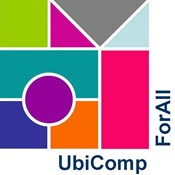
|
Scenarios
Scenario building is a widely accepted way to generate design ideas for new systems and products and to identify the possible users and contexts of use for these systems and products. Scenarios describe individual users in individual usage situations and are not meant to describe the whole system functionality. The value of scenarios is that they concretise something for the purpose of analysis and communication [1, 2]. UbiCompForAll has exploited scenario building both for the design of new services that might be composed by the end-users and for the design of the composition approach itself. As the city-wide wireless broadband infrastructure provided by Wireless Trondheim will be used during experimentation, our scenarios focus on the city and services provided to urban users. [1] J. M. Carroll, Scenario-based design: envisioning work and technology in system development, John Wiley & Sons, 1995.
Doctor's appointment City Guide - Corporate Group City Guide - Family Resource Search - Parking Resource Search - Meeting Resource Search - Shopping No caries - No pain Easy announce and book Tickets for sale! Shared experience Ove creates a service to help his mother watch TV and access other entertainment. It lets him schedule TV shows for Oda to watch. It also incorporates radio, and music and video files, and provides a simple user interface for Oda to access it all. It builds on the “Doctor's appointment” scenario. Click here for the full version (PDF format).
|

Funded by:
| |
